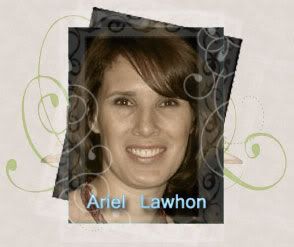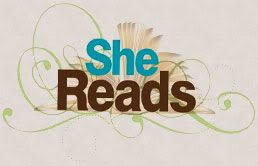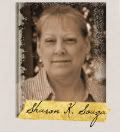
We are so excited about our exclusive Audience-with-an Agent contest, found only here at Novel Matters. We are extremely grateful to our awesome agents, Janet Grant and Wendy Lawton of Books & Such Agency, for their willingness to review the winning manuscripts, and perhaps offer representation to the author. We hope you realize what an opportunity this is, and that you'll submit your entries on or before July 31.
~
Books & Such Literary Agency is truly one of the premier agencies in the industry. The six of us are represented by either Janet or Wendy, and I know I can speak for all of us when I say how blessed we are to be a part of the B&S family. Representation is so important in this current, ever-changing world of publishing, but signing with an agent is almost as difficult as landing a publishing contract. Getting an agent to read your manuscript among the thousands of submissions they receive is a daunting task.
~
That's why we're so thrilled to offer a leg up to the readers of this blog. We will carefully evaluate each submission, then pass on the winning entries to Wendy Lawton to review this fall. We will repeat this contest in the spring and pass on the winning entries to Janet Grant. This really is a remarkable opportunity. We hope you'll take advantage of it. Click on our Promotions tab, then carefully read and follow the contest guidelines. We look forward to reading your submissions.
~

Literary agents are workhorses, and if you're going to plow your way into publishing, life is a lot easier with someone pulling the plow. That wasn't the most flattering metaphor for my lovely agent, Janet, but she is a wonder.
She took my first manuscript,
Like a Watered Garden, to ICRS when I had no idea what an ICRS was. Out on the floor, it's a trade show for retail folks to purchase faith-based items for their stores. Behind the scenes, agents are meeting with editors on a t-i-g-h-t, tight schedule, promoting their clients' book projects.
Janet presented
Like a Watered Garden to at least six publishing houses, ones she knew were looking for a project like mine. She didn't waste anyone's time knocking on doors that didn't want contemporary women's fiction. She didn't have to. She spends all year with her ear to the ground. She knows the biz a million times better than I ever will. And that's why you want to polish that manuscript up until it sparkles and send it into the contest. This kind of opportunity is rare indeed!

I wrote this novel, see, and then, when I was finished, I didn't have a clue what to do with it. I mean, don't these things just sprout legs and walk to their intended destination? Apparently not.
So, I sent out some feelers. A few months later there was some interest in the novel, then, there was more. Suddenly I had more interested publishers than I knew what to do with. A nice dilemma, but I didn't know what I was doing.
I e-mailed a friend and asked "What would you do if you were me?" Her response was, "Girl, you need an agent. Now!" She offered to send a letter of introduction to an agent she knew well and I picked one I had heard many good things about. Later that same day, the phone rang. It was the agent. She had read chapter one on my website (You can read chapter one of Talking to the Dead there under the "fiction" tab if you like), and asked for the full ms. I sent it.
She called me the next day and said she would be happy to represent this book.
And Wow, that's when things started to move fast (well, fast is a relative term in publishing). She jumped on and starting pitching the book right away. Zip Zap Kapow! I was amazed. She knew things
I didn't even know enough to know I didn't know. Within weeks she had a firm offer on the table.
Listen, I don't know much. I'm so new. I only know what happened to me (is happening). But from my story, I think you can see that I am pro agent. I've heard writer's ask "Should I get an agent?" My answer is, "I don't know. But I know that it has made all the difference for me. I'm a writer, not a business person. I don't have the ins agents have. I don't know the industry the way an agent does. If you do, then you might not need one, but think about this: Every huge, big name author you can think of - go ahead think of one. Yep. He has an agent. Yeah, her too. That huge name author, oh ya, she has an agent too. All of them do. Why is that? Because agents can do the job the writer can't do for herself. And with an agent you have an expert in your corner - a team member
working WITH you and FOR you.

You would think that someone who had published books with major Christian publishing companies wouldn't need an agent for, say, her fourteenth book, right? I mean, I had done all right, apparently, on my own.
But I changed genres. With one exception, all my books had been non-fiction. True, they had become increasingly more "literary" in terms of technique (more narration as opposed to previous straight exposition; more analogies, playing with words, etc.) But writing a novel is a whole 'nother country. It was like starting over. Maybe even worse than starting over because other writers agree with me that it's hard to switch from the structure and strictures of non-fiction to the net-less high wire of storytelling. And marketing a fiction book -- though I had some connections, I didn't want to take time away from the actual writing process (and my life) to do the research and legwork.
If someone had told me about a contest such as NovelMatters offers, I'd be mentally camped out on its doorstep, polishing my proposal till it shone and submitting it early enough so it didn't get lost in the last-minute shuffle.

The moment I sold my first Novel, I turned around and started looking for an agent.
Why did I want one? Because I am a writer, not... well, not an agent. I'm not in close contact with all of the editors of all of the houses, I don't know all the changes that have taken place this week that affect my career. I certainly don't know how to read and negotiate a contract. And you know? I don't
want to spend my time learning this stuff. I'm a writer, remember? It makes so much more sense to find a professional like Janet Grant to do this stuff for me.
That's why I'm so proud that we're offering this audience with our big shot agents to you. We're really offering a hand up in your career.

We're waiting for
your manuscript! We won't bite and we won't tell you your 'baby' is ugly. As writers, we all start at 'Go' and work our way around the industry board, but we move along faster with the help of a good agent.
Agents
know things. They know which house is looking for your type of manuscript and whether it's a good match. Often they know about changes at publishing houses before talk has even begun around the water cooler. They keep us from making big mistakes, sometimes potentially career-ending ones. They are the professionals that make us look good.
Your book may be calling you from the drawer or file cabinet where you've stashed it. So polish it up, and if it fits into the guidelines of our contest, send it in! If it doesn't, I encourage you to find out which agents represent other authors who write in your genre. Visit the agency websites, check them out in Sally Stuart's Christian Writer's Market Guide, follow their
submission guidelines, and follow through today.


















 changes this year are somehow connected to the advancement of technology. For years I have stressed the importance of submitting material to an editor by name, but every year it seems like more and more publishers are not naming editors in the guide and are asking that submissions be sent by e-mail to a generic e-mail address, or not even supplying an e-mail address but requiring the use of an online submission form.
changes this year are somehow connected to the advancement of technology. For years I have stressed the importance of submitting material to an editor by name, but every year it seems like more and more publishers are not naming editors in the guide and are asking that submissions be sent by e-mail to a generic e-mail address, or not even supplying an e-mail address but requiring the use of an online submission form. 














